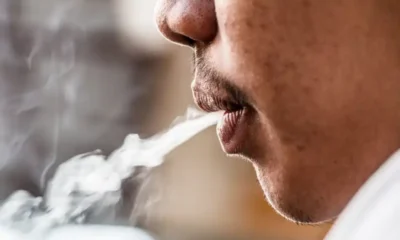Connect with us
Published
2 years agoon
By
Tyler Shultz
Toyota’s Collaborative Safety Research Center (CRSC) has announced four additional research projects are being added to continue to push the boundaries of automotive safety research. The new projects join the nine projects that were announced in April as part of a five-year, $30 million commitment to studying the diversity of safety needs and analyze safe mobility options.
Toyota will continue to collaborate with the University of Virginia, University of Michigan Medical School, University of California San Diego, University of Nebraska Medical Center, Iowa State University and University of Wisconsin-Madison as part of the new research projects which will focus on how diversity impact injury biomechanics, technologies that can prevent impaired drivers from causing injury to themselves and others, how to more effectively pass the operation of a vehicle from person to an automated vehicle and how to predict when a driver is at risk of illness or injury before it becomes an emergency
“As we continue to pursue the needs of industry around automotive safety, these new projects will help us better understand human driving behavior, ways to integrate medical technology and crash protection for a diverse population of physical characteristics,” said Danil Prokhorov, director of Toyota’s CSRC and Future Research Department (FRD).
The projects include a study titled “Assessing driver alcohol and drug impairment using driver monitor systems” that will assess what technologies can help prevent impaired drivers from causing injuries. Researchers from UCSD will “recruit and evaluate volunteers in a simulator to test the feasibility of using existing in-vehicle technologies for detecting driving impairment due to alcohol and cannabis in a controlled setting.”
UCSD has previously studied the effects of cannabis on drivers by studying the effects on drivers in a simulator, with the Center for Medical Cannabis Research at UCSD previously finding at least 50 percent of people with THC in their systems were considered “impaired” when undergoing driving simulations. Findings from the study found the THC test group displayed significantly diminished driving ability based on a score given assessing key driving variables, such as lane swerving, responding to attention tasks and following a lead car. The researchers also noted about 50 percent of the non-placebo subjects could have been described as impaired and not all subjects who consumed THC displayed diminished driving skills.
The CRSC has undertaken 98 research projects with over 30 institutions, published over 260 papers and worked with more than 300 researchers. The CRSC added the University of California, San Diego as a safety research partner in 2012 to better protect vulnerable traffic populations and push the industry further by increasing the capacity of traffic safety.
A team of researchers from the Center for Health, Analytics, Media and Policy, RTI International and Office of Research Protection in Research Triangle Park, North Carolina analyzed the cannabis consumption habits of over 1,200 individuals and found over one third of participants reported driving under the influence within three hours of consuming cannabis and findings suggesting DUIC prevention is most needed in states without legal cannabis.
“Current cannabis users in recreational and medical-only cannabis states were significantly less likely to report driving within three hours of getting high in the past 30 days, compared to current users living in states without legal cannabis,” researchers said. “The one exception was frequent cannabis users who lived in medical cannabis states. Their risk of DUIC [driving under the influence of cannabis] did not differ significantly from frequent users living in states without legal cannabis.”
However, another study conducted by the Governors Highway Safety Association, Responsibility.org and the National Alliance to Stop Impaired Driving, found more drivers in fatal crashes have tested positive for cannabis than before the pandemic.


Enemies of Weed Legalization Are Already Raising Money To Challenge Federal Rescheduling Effort


Psychedelic Pioneer Peggy Mellon Hitchcock Dies at 90


Alaska House Approves Bill To Establish Task Force To Investigate Psychedelic Therapy


Study Finds Medical Cannabis Provides Lasting Benefits for Osteoarthritis Patients


Study: ADHD Patient MMJ Use Leads to Improvements in Anxiety, Sleep, Quality of Life


Clinical Trial To Assess LSD Microdosing For PMS



